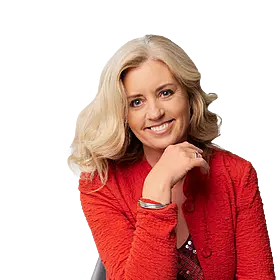It would be a “tragedy” if Ireland limited the use of the Johnson & Johnson vaccine like it has the AstraZeneca jab, according to Professor Luke O’Neill.
The European Medicines Agency (EMA) today found that the benefits of the J&J vaccine outweigh the risk of any side effect.
It said a warning about the potential for unusual blood clots with low blood platelets should be added to the vaccine product information.
It noted that the effects were “very rare,” with eight cases reported among the 7.8 million people who have been vaccinated with the jab in the US.
The agency also noted that intravenous immunoglobulin (IVIg) can be used to treat any patients who develop blood clots.
The Johnson & Johnson and AstraZeneca jabs are both ‘adenovirus’ vaccines and the EMA has now recommended that the warning be added to both.
The National Immunisation Advisory Committee has already limited the use of AstraZeneca to the over-60s as a result and, on The Hard Shoulder this evening, Trinity Professor Luke O’Neill said it would be a “tragedy” if it now did the same with Johnson & Johnson.
“The challenge now is for NIAC because it is in the same class as AstraZeneca so, therefore, should they treat it like AstraZeneca just for the over-60’s?” he said.
“They are going to be on the ropes on that one because that would be consistent wouldn’t it – and yet we need J&J to meet our goals it seems so therefore it is going to be very interesting what happens over the next couple of days.”
Treatment
He said the availability of a treatment could allow NIAC to make the vaccines available to more people.
“It is all about speed now,” he said.
“We know these vaccines are working in the real world. Even one shot is protecting so get it out; get it into people’s arms.
“That is the message now so it is going to be a question that NIAC will have to look at closely as to what they do with this EMA decision.
“Again, they gave us the numbers – eight cases out of seven million. That is an infinitesimally small chance.
“The other good thing about the EMA is they have said how you can treat it. It is now a treatable disease. You give people something called IVIg, which every hospital will have.
“So, they are unlikely to see any cases but should they see any, they have a way to treat people as well.”
Professor O’Neill said it would be “very useful” if Ireland followed the UK's lead and made the vaccines available to the over-30s.
You can listen back here:








